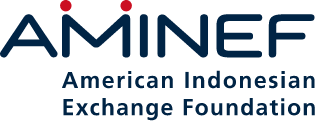East Asia & Pacific Regional Travel Program (RTP)
U.S. Fulbright scholars in the East Asia and Pacific (EAP) region are eligible to receive funds to support short-term (3-14 days) travel to other EAP countries for activities such as lectures, workshops, graduate or faculty seminars, master classes or recitals, curricular advising or panel presentations. The funding can be used to travel to Australia, Indonesia, Japan, Malaysia, New Zealand, Philippines, South Korea, Taiwan, Thailand (all with independent binational Fulbright Commissions), Brunei, Cambodia, Hong Kong/Macau, Laos, Mongolia, Singapore, Timor-Leste, Vietnam and the South Pacific nations of Fiji, Kiribati, Nauru, Tonga, Tuvalu, Papua New Guinea, Solomon Islands, Vanuatu, and Samoa (where U.S. Embassy Public Affairs Sections manage the Fulbright program).
Fulbright scholars may pursue their invitations for appropriate short-term activities, or U.S. Embassy Public Affairs Sections (PAS) or Fulbright commissions may extend invitations to individual scholars for specific activities. The Bureau of Educational and Cultural Affairs (ECA) at the U.S. Department of State funds the EAP Regional Travel Program, administered by the Fulbright Commission in Indonesia, AMINEF.
Purpose
This program aims to share the expertise of American Fulbright scholars already in the region more widely. For instance, a Fulbright scholar based in Vietnam might travel to Mongolia to lecture in social philosophy, as well as to hold discussions about collaborative research efforts; a Fulbright scholar in Cambodia might travel to Samoa to conduct seminars in environmental science and meet with emergency service personnel, or a Fulbright scholar based in South Korea could be invited by PAS Burma to participate in a program related to the role of the media in US elections. US Fulbright scholars may wish to use some time for research, cultural or other personal activities; however, such activities should not take up more than a small portion of their time spent in another country (e.g., one or two days before or after the expertise-sharing/collaborative activity takes place). The duration of the visits should be between three days and two weeks.
Fulbright commissions should alert their US Embassy Public Affairs colleagues of scheduled visits so they may take advantage of programming opportunities.
How to Apply
US Fulbright scholars with a letter of invitation should contact their local Fulbright Commission or US Embassy Public Affairs Section stating their wish to apply for travel funds through the Regional Travel Program. Commission/PAS may also submit requests in the receiving county where the activity will occur. Requests should be sent approximately four weeks before the projected visit to RTP@aminef.or.id (attention to Ms. Astrid Lim, Senior Program Officer, or Mr. Rizqi Arifuddin, Program Officer). Fulbright scholars may not submit requests directly to AMINEF without going through a commission/PAS.
Eligibility
US Fulbright scholars may only apply for RTP funds when abroad during their Fulbright grant period. ECA reserves the right to limit the number of visits to and from any country to ensure equitable usage. An individual scholar may not receive more than two RTP grants in a program year, although exceptions may be made.
Recipients of US Fulbright Student awards (student researchers or English Teaching Assistants) are not eligible to apply for the RTP.
Funds
RTP funds cover between-country travel and not per diem or accommodation. Scholars will be reimbursed for the round-trip travel from their EAP base country to the destination country by the most economical route. RTP funds can also cover in-country ground travel from the arrival city to the city where the activities are taking place. Cost sharing by receiving-country institutions, commission, or US Embassy is highly desirable but not required in the event the scholar assumes responsibility for their accommodation and per diem costs.
Please note that reimbursement of travel expenses will occur within four weeks of the scholars submitting their travel report (see below) and proof of travel expenses incurred.
Honoraria
According to Fulbright Foreign Scholarship Board (FFSB) policies, Fulbright scholars are not permitted to receive honoraria from either commissions or PAS. However, “. . . any honoraria or other fees received abroad for special guest lectures or similar events during the grant period may be accepted by the grantee, subject to the concurrence of the sponsoring commission or PAS.” Although receiving institutions are not required to pay an honorarium to the Fulbright scholar, such support is welcome and viewed as a contribution toward cost sharing.
Reports
Scholars must present a report to AMINEF and the US Embassy/Commission within 30 days after their visit. The information contained in the report will be shared with the Fulbright Office at ECA. The purpose of the report is to help Fulbright scholars reflect on the achievements of their visit, both in terms of research collaboration and institutional partnership building, and to help the Fulbright Program assess the impact of this additional effort to enhance knowledge-sharing and regional cooperation in EAP.
For more information, contact Rizqi Arifuddin, RTP@aminef.or.id.
Forms
Please download the Program Guideline and Application Form.
Last Updated: Oct 12, 2023 @ 4:17 pm



